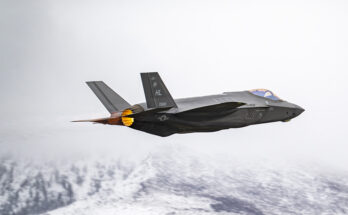by Derek Bisaccio, International Military Markets Analyst, Forecast International.
Since the death last year of Uzbekistan President Islam Karimov, Uzbekistan has made headlines as its new president, Shavkat Mirziyoyev, seeks to reform much of the country by liberalizing the economy, improving the country’s human rights image, and smoothing relations with neighbors in Central Asia. While many observers of the country have been cautious about raising expectations of real reform, given structural constraints, Uzbekistan has released numerous prisoners, removed individuals from a “black list,” and signaled a willingness to end the practice of using forced labor in cotton production. President Mirziyoyev has made a point of engaging with neighboring countries, especially Kyrgyzstan, over disputed topics, such as border delineation and water usage.
Alongside the changes, President Mirziyoyev is also seeking to reform the military. In a speech marking the anniversary of the armed forces’ establishment in January 2017, President Mirziyoyev discussed many of his plans for defense reform. President Mirziyoyev praised Karimov’s efforts “along the path of building our armed forces,” but nevertheless stated, “The rapidly changing military and political situation in the region and the world, growing threats, and challenges to our security…require us not to stop with what we have achieved.” President Mirziyoyev asserted that in order to “adequately react to emerging threats and challenges, as well as our priorities and capacities, there is a need to revise the Defense Doctrine” of Uzbekistan.[i]
The new Defense Doctrine, as outlined by President Mirziyoyev in his January speech, focuses on three key areas of development: rearming the military with modern weapons, launching a local military industry, and reorganizing the armed forces. While Uzbekistan has imported some military equipment over the last few years, much of the country’s force structures are outdated, necessitating either upgrade or replacement. As demonstrated by the 2012 demise of the Tashkent Aircraft Production Corporation’s aircraft production,[ii] the small Uzbek defense industry has shrunk since independence and the subsequent decline in support from the government. In his speech, President Mirziyoyev noted the importance of developing a program over the period 2017 to 2021 to cover military activities such as “procurement of military goods [and] repair and modernization of available military equipment, ensuring their purposeful financing.”
Uzbekistan has begun to put a Defense Doctrine into formal law. The upper house of the Oliy Majlis passed a bill on the Defense Doctrine on December 20, 2017.[iii] The new law, once adopted, will update the previous documents pertaining to the country’s defense posture, which have been in place for around two decades.
As the new Defense Doctrine comes into force, Uzbekistan is already working on implementing provisions related to military reform, most notably through engagement with Russia. Uzbekistan signed a military-technical cooperation agreement with Russia in 2016, soon after President Mirziyoyev took over as interim president, and the two sides ratified the deal in 2017.[iv] President Mirziyoyev visited Russia in April 2017 and held discussions with Russian President Vladimir Putin on a range of issues, including closer military cooperation. The negotiations have seemingly produced a contract for the sale of a dozen Mi-35 attack helicopters to Uzbekistan.[v] According to Kommersant, Uzbekistan is additionally looking to secure further procurement contracts and agreements on conducting upgrades of its aircraft through local facilities.[vi]
Furthermore, Russia and Uzbekistan held joint military exercises in October at the Forish military range in Uzbekistan’s Jizzakh region, marking the first time the countries had conducted a joint exercise since 2005.[vii] Moscow likely wants Uzbekistan to return to the Russian-led Collective Security Treaty Organization (CSTO), which, under President Karimov, Tashkent joined and left multiple times. Kommersant noted that Russia was offering arms to Uzbekistan at CSTO prices, even though Uzbekistan is not currently a member of the alliance. It is unclear whether Uzbekistan will join – the Defense Doctrine, at least nominally, calls for Uzbekistan not to participate in military alliances. Still, under the administration of President Mirziyoyev, Uzbekistan will seek to boost ties with Russia moving forward in order to benefit from Russian military products and receive training from Russian forces.
Uzbekistan is boosting its defense relationship with other countries as well. Uzbekistan’s UzAuto signed an agreement in October 2017 with Turkish firm Nurol Makina on the joint production of 1,000 Ejder Yalçın III armored vehicles, some of which are expected to enter service with the military.[viii] The Ejder Yalçın III was tested in Uzbekistan earlier in the year, and Uzbekistan will directly procure two dozen of the armored vehicles in addition to those to be procured under the joint production agreement. Turkish military forces will train members of the Uzbek armed forces throughout 2018, under agreements signed in July 2017.[ix]
As Tashkent signed agreements abroad to rearm the military and support the defense industry, President Mirziyoyev established a new agency that will oversee the local defense industry, as he called for at the start of the year. The agency, called the State Committee for the Defense Industry, was established in November 2017 and will integrate three state-owned entities pertaining to weapons purchases, engineering, and repairs. The agency will be tasked with organizing the defense industry and providing the military with weapons and other equipment.[x] While Uzbekistan will still need to source many military requirements abroad, the defense industry will help the country provide for some of its needs locally, especially in terms of maintenance services, as well as potentially cut down costs from import agreements.
President Mirziyoyev has reshuffled leadership of the military, putting former Interior Minister Abdusalom Azizov in charge of the Defense Ministry, and aims to bolster military training through the establishment of a military academy. He noted the importance of establishing the academy in his speech in January 2017, stating that it “will take a truly major place in the unified system of military education” for the Uzbek military. The academy is headed by Kabul Berdiyev, the former defense minister, who played an instrumental role in improving the military’s professionalism.[xi] The academy will benefit from assistance from countries like China, which signed an agreement regarding military education in December 2017.[xii]
A little over a year since President Karimov’s passing, some of the biggest changes in Uzbekistan are being seen in the country’s military, which appears to be set on a modernization drive that will allow it to better address the most probable security threats, such as the potential for a terrorist attack. Greater force mobility will improve response times in the event of a security contingency. Given President Mirziyoyev’s warmer approach to foreign relations with the other countries of Central Asia, the new buildup does not come off as posturing against Uzbekistan’s neighbors. The military professionalization does, however, tacitly undermine the influence of Uzbekistan’s intelligence agency, the National Security Service, headed by Rustam Inoyatov, a powerful rival of President Mirziyoyev.
Please feel free to use this content with Forecast International and analyst attributions, along with a link to the article. Contact Ray Peterson at +1 (203) 426-0800 or via email at ray.peterson@forecast1.com for additional analysis.
The Forecast International International Military Markets series examines the military capabilities, equipment requirements, and force structures inventories of 140 countries, with corresponding coverage of the political and economic trends shaping the defense market outlook for individual countries and regions.

[i] Shavkat Mirziyoyev, “Festive Greeting of the President of the Republic of Uzbekistan to the Defenders of Homeland on the Occasion of the 25th Anniversary of Establishment of the Armed Forces of the Republic of Uzbekistan” (January 2017), Speech.
[ii] “Uzbek Aircraft Plant Ends 70 Years of Plane Building,” Sputnik International (June 2012). http://sputniknews.com/business/20120613174001250/
[iii] “Uzbek Senate passes Defense Doctrine Bill,” The Tashkent Times (December 2017). http://tashkenttimes.uz/national/1841-uzbek-senate-passes-defense-doctrine-bill
[iv] “Putin ratifies agreement on military-technical cooperation with Uzbekistan,” UzDaily (April 2017). http://www.uzdaily.com/articles-id-39071.htm
[v] Joshua Kucera, “Uzbekistan Restoring Closer Military Ties with Russia,” Eurasianet (December 2017). http://www.eurasianet.org/node/86456
[vi] “Список, вооружающий воображение” Kommersant (October 2017).
[vii] “Russia, Uzbekistan team up for military drills at Uzbek Forish ground,” Tass Russian News Agency (October 2017). http://tass.com/defense/968574
[viii] “Turkey’s Nurol signs armored vehicle deal with UzAuto,” Anadolu Agency (October 2017). http://aa.com.tr/en/economy/turkeys-nurol-signs-armored-vehicle-deal-with-uzauto/949390
[ix] “Uzbekistan, Turkey sign set of documents in military sphere,” Trend News Agency (July 2017). http://en.trend.az/casia/uzbekistan/2781302.html
[x] “Uzbekistan creates agency to oversee its defence industry,” Ferghana News (November 2017). http://enews.fergananews.com/news.php?id=3621&mode=snews
[xi] “Uzbekistan: President Heads Up Security Bodies With Loyalists,” Eurasianet (September 2017). http://www.eurasianet.org/node/84966
[xii] “Delegation of the Ministry of Defense of China in Uzbekistan,” Uzbekistan National News Agency (December 2017). http://en.trend.az/casia/uzbekistan/2781302.html
For 50 years, Forecast International intelligence reports have been the aerospace and defense industry standard for accurate research, analysis, and projections. Our experienced analysts compile, evaluate, and present accurate data for decision makers. FI's market research reports offer concise analysis of individual programs and identify market opportunities. Each report includes a program overview, detailed statistics, recent developments and a competitive analysis, culminating in production forecasts spanning 10 or 15 years. Let our market intelligence reports be a key part of reducing uncertainties and mastering your specific market and its growth potential. Find out more at www.forecastinternational.com



